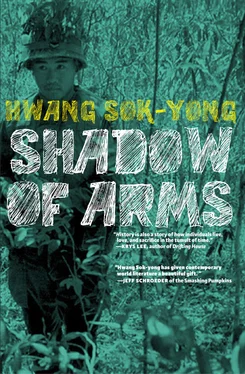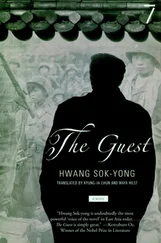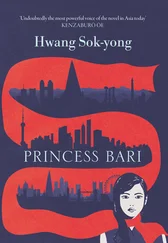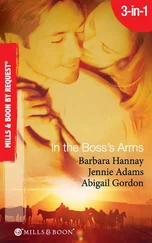The political officer shook his head. “No, the Liberation Front is a united front. It does, however, intend to have a certain unified logic of its own for the fortification of combat strength.”
After Pham Minh left, the officer called in the cell leader from his barracks and ordered him to continue discussing the problems with Pham Minh through the end of training. He also added that everyone in Vietnam, including the fighters, had to carry out a class struggle against colonial elements within their own selves. He then wrote down his opinion in the records of training evaluation.
“Pham Minh, Da Nang native who was medical student at Hue, has many problems as a guerrilla. But he is honest. Before assigning him any leadership responsibility for missions, it is advisable to give him tasks as assistant agent. His petite bourgeois background and his brother Pham Quyen’s position as chief adjutant to General Liam will make him useful for service in Da Nang. Assigning him as a supply agent is considered highly appropriate. Other possibilities are contact agent, tax collector, or procurement agent. Continuous supervision will be necessary.”
A cloud of red dust was hanging in the air in the direction of Route 1. The headlights of the lead vehicle gradually came into view through the dense dust. Yong Kyu checked his watch. Eleven forty. Looking over at the idling truck standing by at the Y-junction, he gave a wave. Slowly, the truck started to pull out onto the westbound road. Yong Kyu jumped in and the motor started to rev.
“Been to the supply warehouse before, haven’t you?”
“Yeah, twice.”
“Once the convoy passes by, be sure to stay right on its tail.”
The driver nodded. Yong Kyu had swapped his civilian outfit for American jungle fatigues. Like Toi, he was wearing sunglasses and had a.45 stuck in his belt, intentionally conspicuous. From now on, Yong Kyu would be in charge of the supply warehouse and the market. It was more than a necessity for investigative tasks; he was personally involved in the underground transactions. The captain had more faith in Yong Kyu than in the sergeant. The non-com team leader seemed to have written Yong Kyu off. Even in their quarters at the hotel, the team leader seldom said a word to him these days. He seemed to think Yong Kyu would soon be transferred to brigade headquarters.
The pact Yong Kyu had forged with the Vietnamese provincial government was unprecedented in the history of the detachment. It was a coup even the economic operations group of the American forces had never been able to manage. His bold black market dealings were quickly given a green light. From then on, the dealing connections would be furnishing a steady flow of detailed intelligence on the black market.
Yong Kyu now needed his own independent channels for purchasing goods. The safety and stability of his sources had to be such that the dealers would at once recognize him as an important figure in the market. And whenever the buyers reported a strong demand for this or that item, Yong Kyu had to prove he could supply those products quickly.
Among the merchants there was a common saying: “If you can sell from Turen, you can buy Ho Chi Minh.” Turen was the supply warehouse that handled all the war materiel and general supplies for the Vietnamese Second Army, not to mention all the American forces in the north central part of South Vietnam. Located northwest of Da Nang, it was defended at the rear by the US Marine Division at Dong Dao and by a dense contingent of ARVN troops, and its front was bounded by the Red Beach along Da Nang Bay.
At Turen, hundreds of Quonsets stood in rows on the sandy plain, shining brightly in the sun. Supply trucks from far-flung regions were constantly entering and exiting through the three gates. From antibiotics to analgesics, from razor blades to tanks, from typewriters to computers, everything Made in America could be found there. The easiest way for Yong Kyu to tap the reservoir at the Turen supply warehouse would be to siphon from the channel running through the supply logistics corps to brigade headquarters. But opening his own direct channel would be safer.
Without his own line of supply, there would always be a risk of other forces blocking him, and he would be open to accusations that his dealings were inappropriate for his special mission. But tapping into the Korea forces’ existing supply lines would later create problems and cause serious difficulties. If the Americans or the Vietnamese were to challenge him, they probably would let him off with a stern warning. But the Koreans would face difficulties as the others tightened their grip on them. Yong Kyu and Pointer could always resign, but it would still weaken their successors’ position in this mission.
Yong Kyu already had it in mind to set up a warehouse stocked with B-rations. Almost every commodity they packed and processed was on hand on Turen. Almost everything a man would ever need was there. About half of the stocks were military equipment and supplies like weapons, ammunition, and vehicles. The other half was made up of daily necessities and food, including luxury goods, which were the easiest commodities to sell on the black market.
There was a wide assortment of things that made the camp life of American soldiers more comfortable but which did nothing for combat readiness. For instance, the war would go on without raisins, but upon returning from a firefight, the Americans given a hot meal would hope to find raisins in their freshly baked muffins. And those were the kinds of items coveted by the residents of Da Nang. Of course, the consumers were not the peasants on the outskirts of the city who survived on a bit of fish and a handful of rice each day. It was the government bureaucrats, merchants, and families of military officers who were the loyal consumers of all the bountiful wonders liberated from the Turen supply warehouse. The links between these consumers and the dealers made up a complex ecosystem, not so different from a food chain of predators and prey found in the natural world.
Yong Kyu decided to concentrate on B-rations because these were goods that enjoyed a broad-based and stable demand in the local population. Food provisions were classified into three categories: unprocessed A-rations; B-rations that are semi-processed or partly cooked but still need to be cooked in combination with other ingredients; and C-rations that, for use in combat situations, are made for ready consumption.
The A-rations were handled at the MAC terminal across the smokestack bridge. They included vegetables — potatoes, onions, cabbage, celery, asparagus, lettuce, and peppers — and various kinds of frozen and processed meats — beef, pork, chicken, turkey, sardines, sausages — as well as fruits such as oranges, apples, bananas, dates, grapes, cherries, melons, and so on. The produce was mostly flown in from the US, in crates bearing the black stamps of farms in California, Florida, and Washington. The vegetables were even fresher than those picked near Hoi An and trucked into the Da Nang markets.
All the grains and flours — corn, barley, wheat, and rice — were kept at the MAC 36 cargo terminal and delivered directly from there, but all B and C-rations were warehoused at the Turen supply warehouse. B-rations included all the canned and packaged foodstuffs, ranging from spices like black pepper to salad dressing, sauces, raisins, almonds, walnuts, coffee, tea, butter, cheeses, pasta, etc. Yong Kyu was confident he could keep a firm grip on the marketing channels of Da Nang with B-rations alone. These commodities could be considered the cleanest of those that flowed through the black market. Though “clean,” after all, was only a relative expression. Once he had locked up a major chunk of the food trade, he could fumble his way into other daily necessities and luxury food items, one by one. Pham Quyen did not yet seem to think much of Yong Kyu’s involvement in the business. He had lived up to his promises and issued them a vehicle pass, which would expire after one month.
Читать дальше












